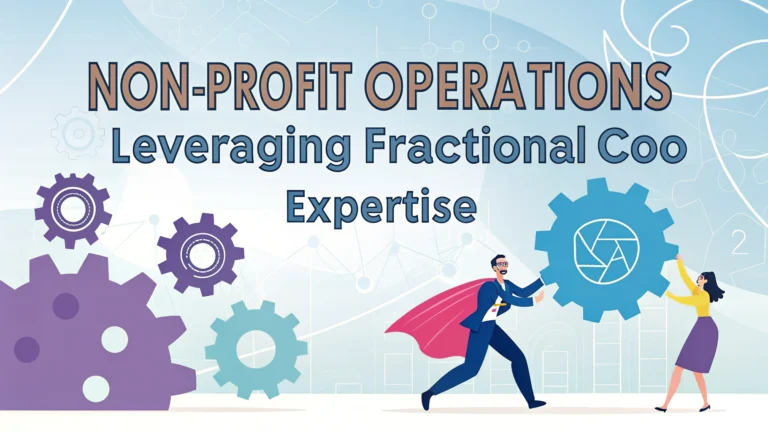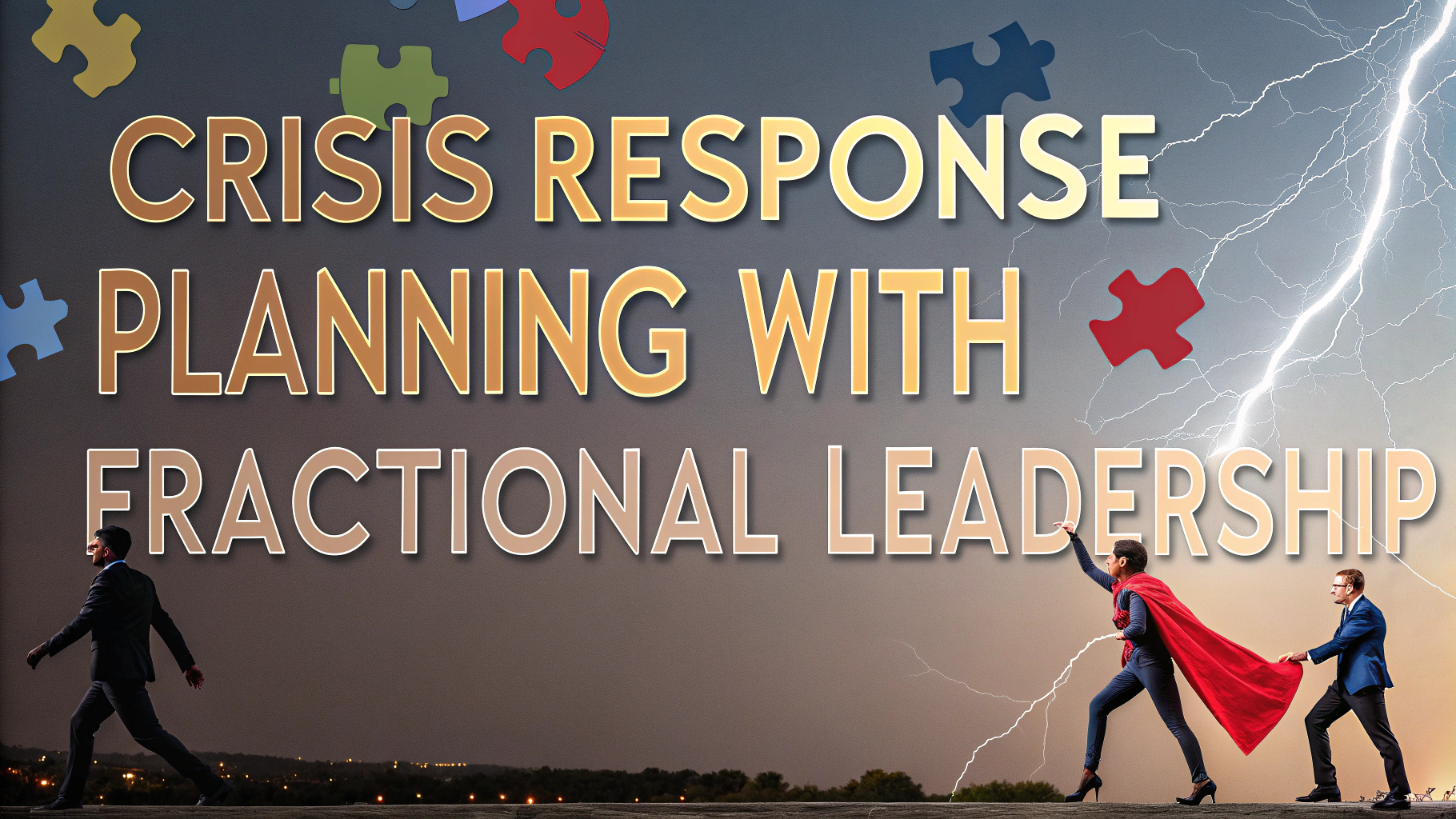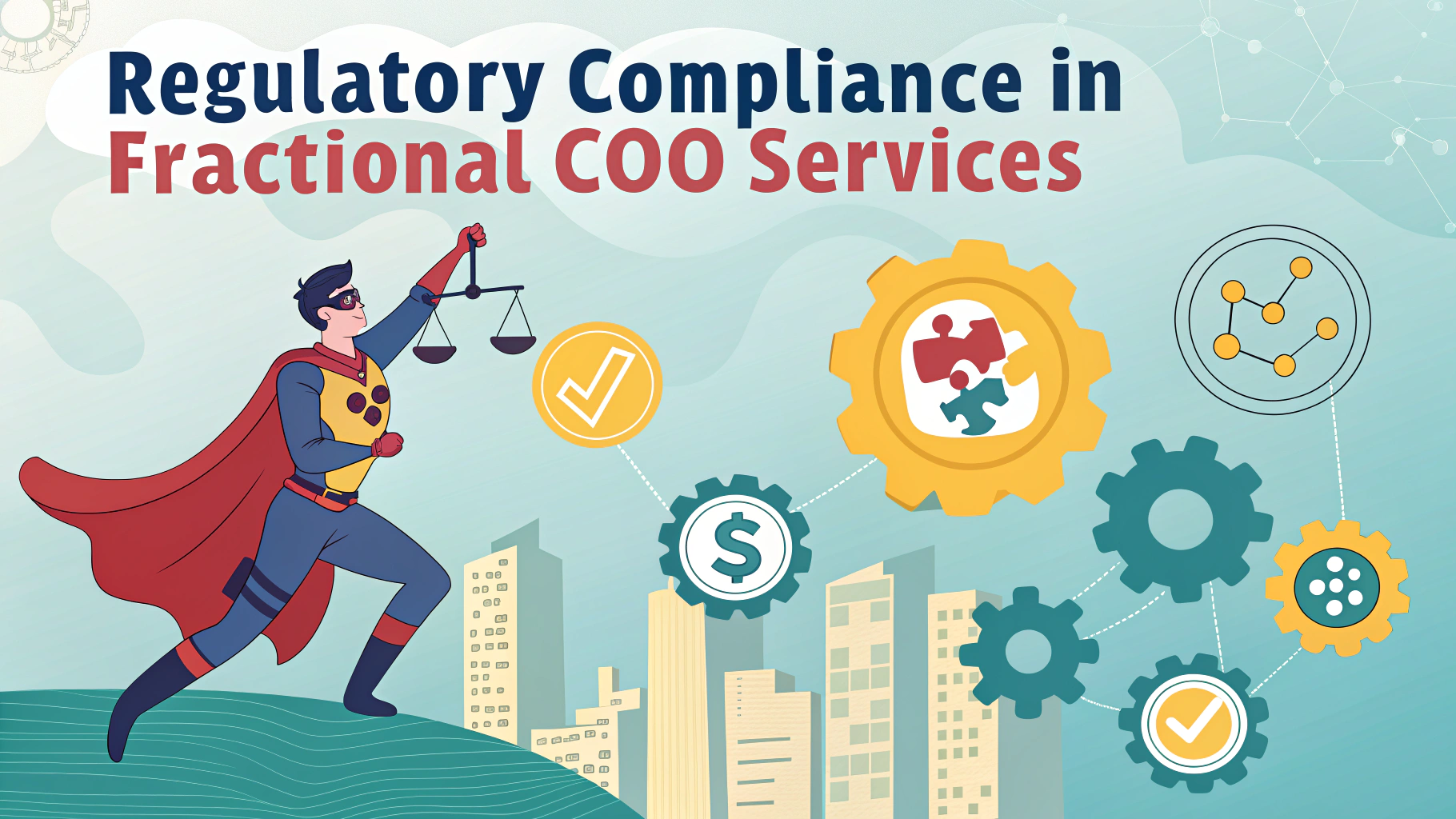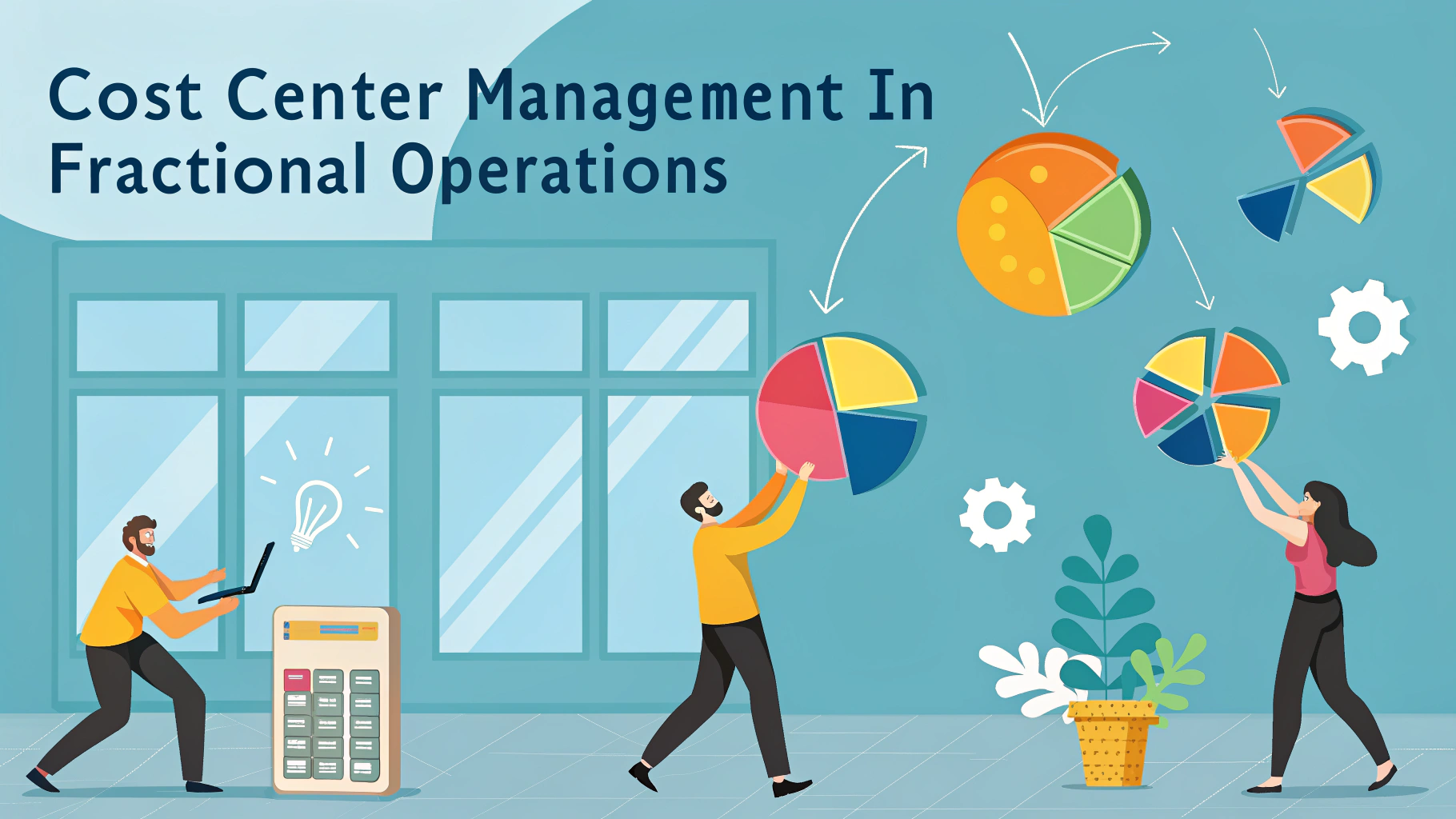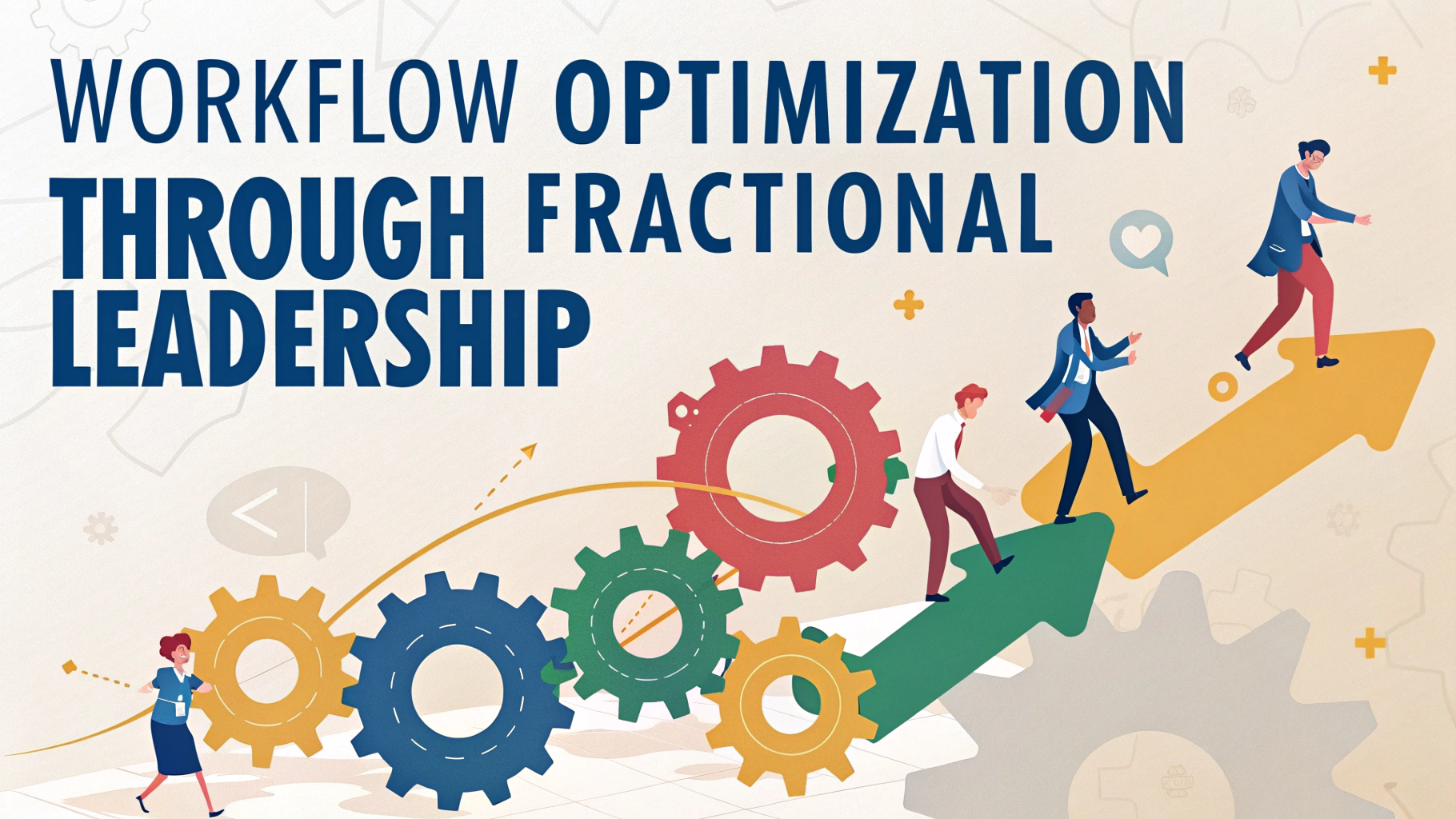A fractional COO can transform how non-profit organizations operate by bringing executive-level expertise without the full-time cost burden.
Small to mid-sized non-profits often struggle with operational efficiency but cannot afford a full-time Chief Operating Officer to optimize their processes and systems.
This guide explores how fractional COO services can help non-profits achieve their missions more effectively through strategic operational leadership.
What is a Fractional COO?
A fractional COO works part-time or on a contract basis to provide high-level operational leadership to multiple organizations.
- Typically works 5-20 hours per week per organization
- Brings executive experience at a fraction of full-time costs
- Focuses on systems, processes, and operational efficiency
- Provides strategic guidance to leadership teams
Key Benefits for Non-Profits
Non-profits can access seasoned operational expertise without straining their budgets.
- Cost-effective executive leadership
- Improved operational efficiency
- Enhanced program delivery
- Better resource allocation
- Stronger donor relationships
- Scalable growth strategies
Core Responsibilities
A fractional COO takes ownership of these essential operational areas:
- Process optimization and standardization
- Team management and development
- Financial oversight and budgeting
- Technology implementation
- Compliance and risk management
- Performance metrics and reporting
Finding the Right Fractional COO
Look for these qualifications when selecting a fractional COO:
- Non-profit sector experience
- Track record of operational improvements
- Strong communication skills
- Project management expertise
- Change management experience
Implementation Timeline
| Phase | Duration | Focus Areas |
|---|---|---|
| Assessment | 2-4 weeks | Current operations analysis, goal setting |
| Planning | 2-3 weeks | Strategy development, priority setting |
| Implementation | 3-6 months | Process improvements, system updates |
| Optimization | Ongoing | Monitoring, adjustments, scaling |
Measuring Success
Track these key performance indicators (KPIs) to measure your fractional COO’s impact:
- Operational cost reduction
- Program delivery efficiency
- Staff productivity metrics
- Donor retention rates
- Grant application success rates
- Volunteer engagement levels
Cost Considerations
Typical fractional COO costs range from $2,000 to $10,000 per month based on:
- Hours required per week
- Scope of responsibilities
- Organization size and complexity
- Experience level needed
- Project duration
Next Steps for Your Non-Profit
Take these actions to begin leveraging fractional COO expertise:
- Assess your operational needs and challenges
- Define your budget and scope requirements
- Research and interview potential candidates
- Check references and past results
- Develop clear goals and metrics
- Create an onboarding plan
Contact professional non-profit networks or executive search firms specializing in fractional leadership roles to find qualified candidates.
Working With Your Fractional COO
Establishing a productive partnership with your fractional COO requires clear communication and expectations:
- Set regular check-in meetings
- Define communication channels
- Establish reporting structures
- Share organizational knowledge
- Provide necessary access to systems
Common Implementation Challenges
Internal Resistance
Address potential staff concerns through:
- Clear communication about the COO’s role
- Involving team members in process changes
- Highlighting benefits to staff workload
- Regular feedback sessions
Resource Constraints
Manage limited resources by:
- Prioritizing critical improvements
- Phasing implementations
- Leveraging existing tools
- Training internal champions
Maximizing Long-term Impact
Ensure sustainable improvements through:
- Documentation of new processes
- Staff training programs
- Regular performance reviews
- Continuous improvement cycles
- Knowledge transfer plans
Transforming Non-Profit Operations
A fractional COO represents a strategic investment in your non-profit’s operational excellence. By carefully selecting the right partner and following implementation best practices, organizations can achieve significant improvements in efficiency, effectiveness, and impact. The key is to approach the engagement with clear goals, open communication, and a commitment to sustainable change.
Begin your journey toward operational excellence by evaluating your organization’s needs and exploring how a fractional COO can help achieve your mission more effectively. With the right approach, this investment can yield returns far beyond the initial cost through improved operations, stronger programs, and greater community impact.
FAQs
1. What is a fractional COO and how can they benefit non-profit operations?
A fractional COO is a part-time Chief Operating Officer who provides strategic and operational expertise to organizations on a flexible basis. They help non-profits optimize processes, implement systems, and improve efficiency without the cost of a full-time executive.
2. How much does a fractional COO typically cost for a non-profit?
Fractional COOs typically charge between $150-500 per hour or $2,000-10,000 per month, depending on involvement level and organization size. This represents significant savings compared to a full-time COO’s salary and benefits package.
3. What specific operational areas can a fractional COO help improve in a non-profit?
A fractional COO can enhance program delivery, volunteer management, donor relationships, financial operations, technology implementation, staff development, compliance, and strategic planning processes.
4. How long should a non-profit expect to work with a fractional COO?
Engagements typically range from 3-12 months for specific projects, or ongoing arrangements of 5-20 hours per month for continuous operational oversight. The duration depends on organizational needs and goals.
5. What qualifications should non-profits look for in a fractional COO?
Look for individuals with proven non-profit management experience, strategic planning capabilities, financial acumen, change management expertise, and a track record of implementing successful operational systems.
6. Can a fractional COO help with grant management and compliance?
Yes, fractional COOs can establish grant management systems, ensure compliance requirements are met, create reporting processes, and develop internal controls for grant funding oversight.
7. How do fractional COOs integrate with existing non-profit leadership?
They work collaboratively with executive directors, board members, and staff, providing guidance while respecting organizational culture and existing leadership structures. They typically report to the Executive Director or Board of Directors.
8. What metrics can be used to measure a fractional COO’s impact?
Key performance indicators include operational cost reductions, program efficiency improvements, staff productivity increases, compliance adherence rates, successful system implementations, and achievement of strategic objectives.
9. How does a fractional COO help with volunteer management?
They develop volunteer recruitment strategies, create training programs, implement management systems, establish performance metrics, and optimize volunteer engagement to support organizational mission delivery.
10. What technology solutions do fractional COOs typically implement?
They often implement donor management systems, volunteer tracking software, financial management tools, project management platforms, and other technology solutions that improve operational efficiency.
